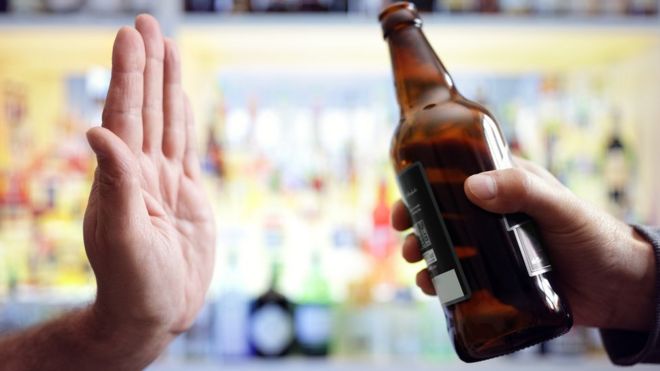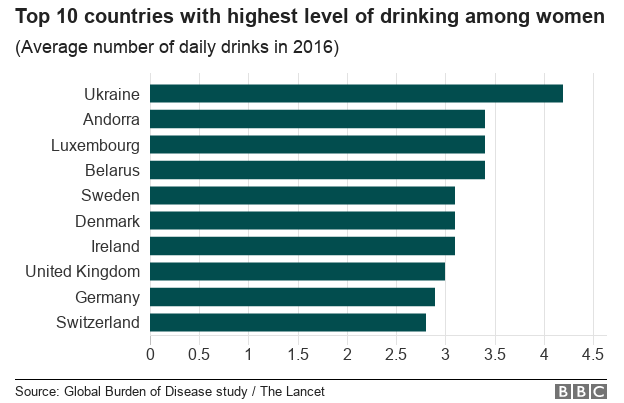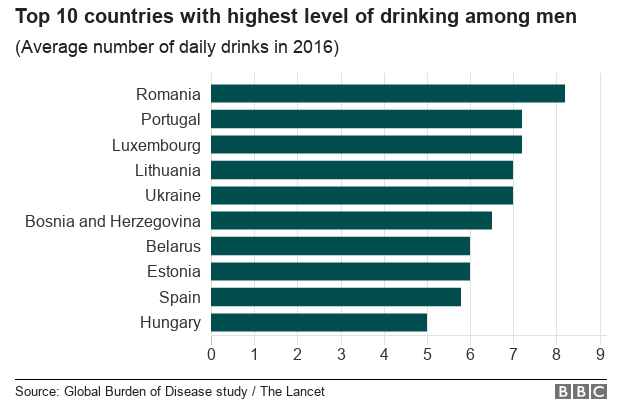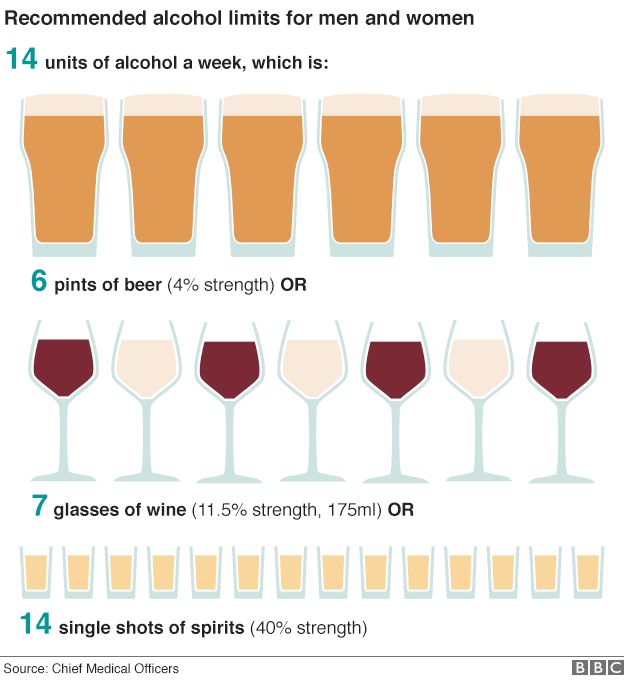Moderation Negates Compromise
"The most surprising finding was that even small amounts of alcohol use contribute to health loss globally," said. We're used to hearing that a drink or two a day is fine. But the evidence is the evidence."
"Most deaths from alcohol come from cardiovascular disease and cancers when you look at average consumption by age and sex within countries."
"We too found some protective effects for Type 2 diabetes and ischemic heart disease at low levels of alcohol consumption."
"But those benefits are outweighed by the overall adverse health impact of alcohol, even at moderate levels."
Emmanuela Gakidou, senior study author, professor, University of Washington's Institute for Health Metrics and Evaluation
"This study is a stark reminder of the real, and potentially lethal, dangers that too much alcohol can have on our health and that even the lowest levels of alcohol intake increase our risks."Helen Stokes-Lampard, chair, Royal College of General Practitioners, UK
 |
| Getty Images |
"There is no safe level of driving, but governments do not recommend that people avoid driving."
"Come to think of it, there is no safe level of living, but nobody would recommend abstention."
"Given the pleasure presumably associated with moderate drinking, claiming there is no 'safe' level does not seem an argument for abstention."
David Spiegelhalter, British statistician, Winton Professor for the Public Understanding of Risk, University of Cambridge
"I am sure that I could create a chart showing increasing risk for many diseases from zero to fifteen desserts."
"This could lead to assertions that 'there's no safe amount of dessert'. But it doesn't mean you should never, ever eat dessert."
Aaron Carroll, health researcher
"Based on these findings, at no point ... is there a level of consumption that appears to lower the overall risk of developing any of the wide array of diseases investigated in comparison to non-drinking.""The take-home message being that people shouldn't drink under the belief that it will lower their risk of disease, and those of us who opt to drink should minimize our intake if we wish to prolong our life and well-being."University of Cambridge epidemiologist Steven Bell

Pick your poison. And many people do. Moderately, to ensure they aren't, after all, poisoned, simply moderately lifting their spirits, so to speak. As a relaxation technique among congenial friends and acquaintances. In public. Rarely privately. But even in the privacy of one's own home, selectively and with a certain amount of caution. After all, a goblet of wine at dinnertime is simply a way to complement the pleasure of the meal. As any discerning oenophile can tell you. Medical science just recently was extolling the virtues of wine in moderation, as a way to avoid heart problems. The resveratrolin red wine and antioxidants held to protect against coronary heart disease.
And then along came a Lancet-published study claiming "the safest level of drinking is none". Glum, gloomy news for those who appreciate alcohol in any form. A study that chided government health boards advocating moderate drinking and its purported benefits, for not advising people to completely abstain from drinking at all. Well, they do in fact insist that women planning a pregnancy or women in pregnancy and nursing mothers avoid alcohol in any amounts, like the plague. No one really wants to confer fetal alcohol syndrome on their innocent child. But this, this is radical ... no.one.should.indulge.in.any.amount.period...
Evidently, the study posits that if 100,000 teetotalers were to be studied, in a single year 914 of that total would develop breast cancer, liver cancer or one of any number of the remaining 23 health conditions known to complicate people's lives. The same number of people who consume a drink once daily would see 918 of the total affected with those same health conditions. Consuming one drink daily causes four of every 100,000 people to contract a serious disease. As odds go, that kind of seems slight on the scale of possibility. But it does however slightly increase the potential of disease onset, however limited the number of those affected.
 |
| A glass of red wine a day is not healthy, say researchers Getty Images |
"Previous studies have found a protective effect of alcohol on some conditions, but we found that the combined health risks associated with alcohol increases with any amount of alcohol."The study represents a meta-analysis of close to 700 previously published international studies, an accurate measurement that those who imbibe on average, tend to be less healthy and suffer an earlier mortality rate than non-drinkers. One of the study's critics, health researcher Aaron Carroll, pointed out that the study fails to control for "unmeasured" factors such as the fact that some lifestyles and circumstances may underlie the alcohol determination, in that drinkers might be on the low-income spectrum, are unhealthy to begin with, perhaps due to chronic depression making them disproportionately more likely to become even more ill.
"The strong association between alcohol consumption and the risk of cancer, injuries, and infectious diseases offset the protective effects for heart disease in our study."
"Although the health risks associated with alcohol start off being small with one drink a day, they then rise rapidly as people drink more."
Dr Max Griswold, at the Institute for Health Metrics and Evaluation (IHME), University of Washington
It takes no genius to understand that heavy drinking does not qualify as a sound choice for a healthy and long life. The longer people indulge in heavy drinking the shorter their lifespan becomes and in between there is the issue of declining health leading to death. Health researchers in the United States, noting that life expectancy has dropped in recent years, point to alcohol, suicide and drugs. World-wide in 2012, 3.3 million people died as a result of "harmful" consumption of alcohol, according the World Health Organization. Alcohol-related causes killed so many men in Russia from the 1980s on, what has resulted is a demographic of women for whom there are no men.




0 Comments:
Post a Comment
<< Home